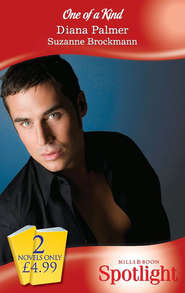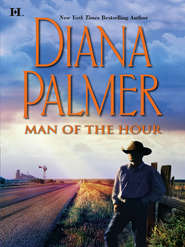По всем вопросам обращайтесь на: info@litportal.ru
(©) 2003-2024.
✖
Fearless
Автор
Год написания книги
2018
Настройки чтения
Размер шрифта
Высота строк
Поля
“Euphoric,” he said honestly. “We traveled a lot. My father was, ah, in the military,” he invented quickly.
“I had a friend whose father was, too. They traveled all over the world. She said it was an experience.”
“Yes. One learns a great deal about other cultures, other ways of life. Many problems in politics arise because of cultural misunderstanding.”
She laughed. “Yes, I know. We had a man in an office I worked for who was Middle Eastern. He liked to stand very close to people when he was talking to them. Another guy in the office was a personal space maniac. He backed right out a window one day trying to avoid letting his colleague get close to him. Fortunately it was on the first floor,” she added, laughing.
He smiled. “I have seen similar things. What a mixture of people we are in this country,” he murmured. “So many traditions, so many languages, so many separate belief systems.”
“Things were different when I was little,” she recalled.
“Yes. For me, too. Immersed in our own personal cultures, it is hard to see or understand opposing points of view, is it not?”
“It is,” she agreed.
He rocked the swing back into motion. “You and Consuelo are wearing yourselves thin on this latest picking of fruit,” he pointed out. “If you need help, say so. I can hire more people to help you. I’ve already asked Jason for permission.”
“Oh, we’re doing okay,” she said with a smile. “I like Consuelo. She’s a very interesting person.”
“She is,” he said.
His tone was personable, but there was something puzzling in the way he said it. She wondered for an instant if he, too, had suspicions about his cook.
“What do you think of Marco?” he asked suddenly.
She had to be very careful in answering that question. “He’s very nice-looking,” she said carelessly. “Consuelo dotes on him.”
“Yes.” He rocked the swing again.
“She said his father was in jail.”
He made an odd sound. “Yes. Serving a life sentence.”
“For drug smuggling?” she blurted out incredulously, because she knew how difficult it was to send a smuggler away for life without a lot of additional felony charges.
His head turned toward her. He was very quiet. “Is that what she told you?”
She cleared her throat, hoping she hadn’t given herself away. “Yes. She said he was mistaken for another man.”
“Ah.” He puffed on the cigarette.
“Ah?” she parroted, questioning.
“He was piloting a go-fast boat with about two hundred kilos of cocaine,” he said easily. “He was so confident that he’d paid off the right people that he didn’t bother to conceal the product. The Coast Guard picked him up heading for Houston.”
“In a boat?”
He chuckled. “They have airplanes and helicopters, both with machine guns. They laid down a trail of tracers on both sides of his conveyance and told him to stop or learn to swim very fast. He gave up.”
“Goodness! I never knew the Coast Guard worked smuggling cases,” she added with pretended ignorance.
“Well, they do.”
“But the product still gets through,” she said sadly.
“Supply and demand drive the market. As long as there is a demand, there will certainly be a supply.”
“I suppose so,” she said, her voice very quiet.
He rocked the swing into motion again. It was very pleasant out here with her, he thought. But he would rather have been with Sarina and Bernadette. He was lonely. He’d never thought of himself as a family man, but three years of looking out for two other people had changed his mind. He’d even gone so far as to think about having a child of his own. Pipe dreams. All dead now.
“Is this what you planned to do with your life?” she asked suddenly. “Managing a truck farm, I mean?”
He laughed softly. “At one time, I wanted very much to be a commercial airline pilot. I have a pilot’s license, although I rarely make use of it. Flying is expensive,” he added quickly, in case she had some idea of how much private planes cost.
She hesitated about probing further. He was a very private person, and she sensed some irritation in his tone that she’d asked about his goals.
She stared off into the distance. “I wanted to be a ballerina when I was young,” she said quietly. “I took lessons and everything.”
He winced. “That must have been a painful loss.”
“Yes. I’ll never get rid of the limp unless they can find a way to remake muscle and bone.” She laughed shortly. “I enjoy watching ballet productions on educational television,” she added. “And I’d probably have embarrassed myself with any serious dancing. I’m just clumsy. The first recital I was in called for us to hold hands and dance past the orchestra pit. I fell in, right onto a very big fellow playing a big tuba. The audience thought it was all part of the routine.” She grimaced. “My mother got up and walked out of the auditorium,” she recalled. “She never went to another recital. She thought I did it deliberately to embarrass her.”
“A truly paranoid personality,” he commented.
“Yes, she was,” she said quickly. “How did you know?”
“I knew a man who was the same. He thought people were following him all the time. He was certain the CIA had bugged his telephone. He wore a second set of clothing under his suits, so that he could duck into a rest room and change to throw his pursuers off the track.”
“My goodness!” she exclaimed. “Did they lock him up?”
“They couldn’t.” He chuckled. “He headed a very dangerous federal agency at the time.”
She was really curious now. “How did you find out about it?”
He hesitated, playing for time. He was getting careless. He was supposed to be an uneducated farm laborer. “A cousin of mine played semipro soccer with a cousin of his,” he replied finally.
“Nice to have a pipeline like that,” she said. She laughed. “You could have made a fortune if you’d tipped off the tabloids.”
And gotten himself put on a hit list, he thought silently. The man had been a very dangerous enemy. Rodrigo had taken work in Mexico to avoid being around him until he finally retired. Having dual citizenship with the U. S. and Mexico had come in handy. It was really handy now, since there was a price on his head in almost every other country on earth. He glanced at Glory and wondered what she’d think of him if she knew the truth about his anguished past.
“Did you have pets when you were little?” she asked after a minute, just for something to say.
“Yes,” he replied. “I had a parrot who spoke Danish.”
“How odd,” she replied.
Not really, because his father had been Danish. He didn’t explain. “How about you? Did you have other pets besides the ill-fated cat?”











